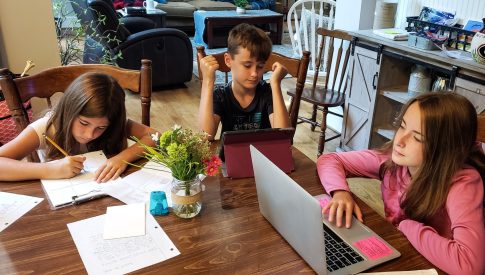Modern Studies - National 5 Index
Online Lessons for Students in Scotland learning National 5 Modern Studies
- Power and Decision Making
- Participation
- Influence
- Representation
- Voting Systems
- Nature of Crime
- Causes of Crime
- Responses to Crime
- Prison
- Political System
- Influence on Other Countries
- Social and Economic Issues
- Skills Questions
Democracy in Scotland: Scotland is a democracy, being represented in both the Scottish Parliament and the Parliament of the United Kingdom since the Scotland Act 1998. Most executive power is exercised by the Scottish Government, led by the First Minister of Scotland, the Head of Government in a multi-party system.
Power and decision making: lessons in this section cover the Scottish political system, devolved and reserved issues, role of the First Minister, participation, influence and representation.
Scottish political system: the lesson explains the Scottish Parliament takes its power from Westminster, how the system fits together and that powers can be added or taken.
Devolved and Reserved Issues: Devolved matters are those areas of government where decision-making has been delegated by Parliament to the devolved institutions such as the Scottish Parliament. Reserved matters are decisions that are still taken by the UK Parliament at Westminster even though they have effect in Scotland.
Role of the First Minister: The First Minister chairs the Scottish Cabinet, the main forum for ministers to consider and make key decisions on the strategic priorities and policies of the Government to achieve its objectives
Participation: this section explains rights and responsibilities, participation, campaigns, elections, influence and representation.
Rights and responsibilities: pupils learn the rights that Scottish people have, the responsibilities these rights come with and why people should use their right to vote.
Participation in politics: pupils learn about taking part in politics in a range of different ways, including examples of the methods and whether they work.
Campaigns and elections: this lesson explains different ways that people campaign to get elected and examples from recent elections.
Influence: this section details lessons on media influence and pressure groups.
Media influence: the force exerted by a media message, resulting in either a change or reinforcement in audience or individual beliefs. Media effects are measurable effects that result from media influence or a media message.
Pressure groups: the pressure group is defined as a special-interest group which seeks to influence Government policy in a particular direction.
Representation: this lesson explains the role of MSPs, women and minorities in politics, and the committee system.
Role of the MSP: an MSP’s work is split between work in parliament and constituency duties. Parliamentary work includes taking part in debates, raising private member’s bills and dealing with lobbying groups. In their constituencies, MSPs have to deal with the difficulties and issues of the people they represent.
Women and minorities in politics: this lesson explains the importance of representation in the Scottish Parliament and how it should reflect Scotland. What are the ways parliament can reflect society?
Committee system: under this model, a Council elects a leader but power is exercised, alongside full Council, by a number of committees, made up of councillors in proportion to their parties’ representation on the Council.
Voting systems: an electoral system or voting system is a set of rules that determine how elections and referendums are conducted and how their results are determined.
Additional member system: a mixed electoral system with one tier of single-member district representatives, and another tier of “additional members” elected to make the overall election results more proportional.
Crime and law: this section explains nature of crimes, causes of crimes, responses to crime and prison.
Nature of crime: four conditions must exist for an act or omission to be considered a crime: the act is considered wrong by society; the act causes harm to society in general or those in need of protection; the harm is serious and; the remedy must be handled by the criminal justice system.
Crime in Scotland: this lesson teaches the different types of crime in Scotland and the figures behind them.
Crime figures: the different ways to measure crime and reliability are important concepts in Modern Studies.
Causes of crime: the causes of crime are varied – poverty, parental neglect, low self-esteem, alcohol and drug abuse – all can be connected to why people break the law. Some are at greater risk of becoming offenders because of the circumstances into which they are born. This lesson aims to explain some of the causes.
Social causes of crime: social root causes of crime are inequality, not sharing power, lack of support to families and neighbourhoods, real or perceived inaccessibility to services, lack of leadership in communities, low value placed on children and individual well-being.
Economic causes of crime: this lesson teaches the role of economic shocks such as changes in benefit, restrictions on the availability of finance (payday loans), unemployment or unstable jobs, and poor labour market conditions.
Biological theories of crime: biological theories of crime asserted a linkage between certain biological conditions and an increased tendency to engage in criminal behaviour.
Response to crime: this section explains consequences of crime, the youth justice system and how the Government tackles crime.
Consequences of crime: crime has a range of effects on victims and their families. Those affected may be hurt emotionally, physically and/or financially. The effects can be worse if the crime involves violence.
Youth justice system: works with young people who offend. It can help young people to improve their behaviour and integrate back into their communities and encourage young people to make amends for their crimes
How the Government tackles crime: this lesson explains ways in which the government try to reduce crime and how effective these ways are.
Police in Scotland: this lesson teaches the role and powers of the Police in Scotland and the effectiveness of the Police in tackling crime.
Prison: this lesson teaches the role and powers of the Police in Scotland and the effectiveness of the Police in tackling crime.
The courts in Scotland: there are fiur different types of criminal courts in Scotland: High Court; Sheriff Court; Sheriff Appeal Court; Justice of the Peace Court.
Prison and its alternatives: this lesson explains the purposes of prison and the main alternatives to prison and their effectiveness.


"It's bright and colourful, easy to read, and extremely easy to use unlike most textbooks or online learning websites" Daisy, S3 PupilSign Up & Learn Today

